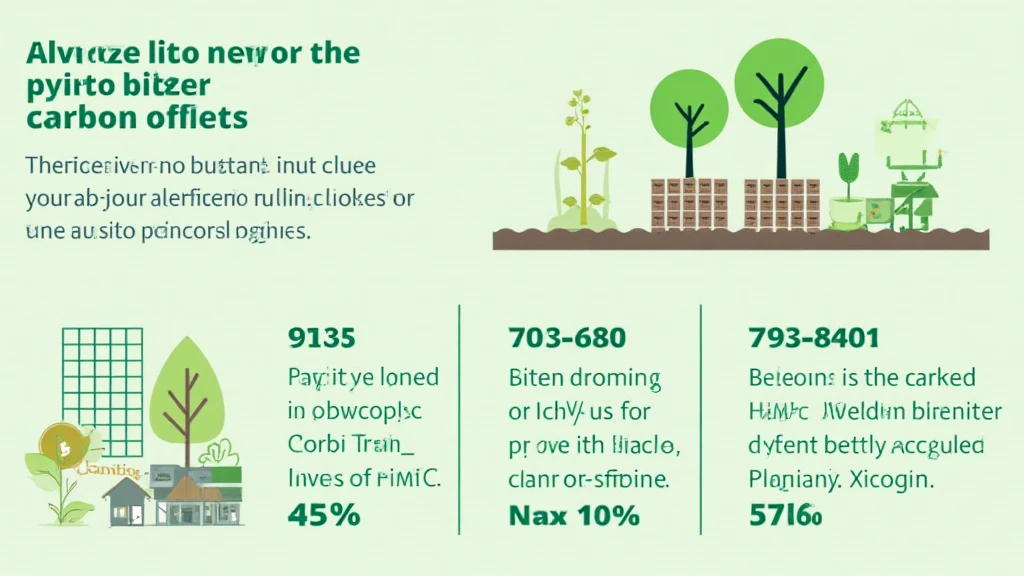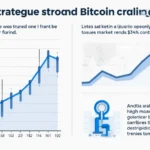Introduction to Bitcoin Carbon Offset Programs
With the growing scrutiny over the environmental impact of cryptocurrency mining, particularly Bitcoin, there has been an increasing interest in carbon offset programs. In 2024, it is estimated that the Bitcoin network alone contributed to the emission of around 0.5% of the world’s energy consumption, equivalent to the energy use of the entire country of Argentina. This staggering figure has prompted both miners and investors to seek solutions to mitigate the carbon footprint associated with Bitcoin mining.
This article aims to provide an extensive overview of Bitcoin carbon offset programs, their significance in promoting sustainability, and how they contribute to reducing the environmental impact of cryptocurrencies. We’ll delve into various carbon offset initiatives, the role of blockchain technology in these programs, and their future, particularly in rapidly developing markets like Vietnam.
Understanding Carbon Offsetting
What is Carbon Offsetting?
Carbon offsetting involves compensating for emissions produced by investing in projects that reduce or remove an equivalent amount of carbon dioxide from the atmosphere. This can include initiatives such as reforestation, renewable energy projects, and energy efficiency improvements.

How Do Bitcoin Carbon Offset Programs Work?
Bitcoin carbon offset programs commonly function by enabling Bitcoin miners and exchanges to purchase carbon credits that correspond to their emissions. Each carbon credit typically represents one metric ton of carbon dioxide prevented from entering the atmosphere. By purchasing these credits, companies can effectively counterbalance their carbon footprint.
- Involvement of Blockchain Technology: Utilizing smart contracts to manage transactions and verify offset projects.
- Transparent Tracking: Allowing stakeholders to track the effectiveness of their offsets through blockchain’s immutable ledger.
- Community Engagement: Programs that involve local communities in offset projects can yield greater environmental and social benefits.
The Importance of Bitcoin Carbon Offset Programs
Sustainability in the Cryptocurrency Space
The need for sustainable practices is increasingly highlighted in the cryptocurrency community. The Bitcoin network’s energy-intensive mining process has drawn significant criticism, pushing industry leaders to take initiatives.
As regulations evolve, it is crucial for companies to adopt carbon offset programs to demonstrate their commitment to sustainability. The presence of such programs is quickly becoming a determining factor for investors who prioritize the environmental impact of their investments.
Data Supporting Carbon Offset Initiatives
According to a recent report by Chainalysis in 2025, the environmental impact of Bitcoin mining is expected to increase unless significant measures are taken. This includes engaging in carbon offset programs that are projected to grow in popularity, especially among miners who aim to maintain a competitive edge while being environmentally responsible.
| Year | Bitcoin Mining Emissions (in MtCO2) | Number of Carbon Offset Projects |
|---|---|---|
| 2021 | 50 | 200 |
| 2023 | 65 | 350 |
| 2025 | 80 | 500 |
Current Bitcoin Carbon Offset Programs
Leading Initiatives in 2024
There are several prominent carbon offset programs specifically designed for the cryptocurrency industry:
- EcoWatch: Focuses on developing renewable energy projects in regions impacted by Bitcoin mining.
- CarbonX: A platform that allows companies to buy carbon offsets directly tied to their Bitcoin mining operations.
- Myco: A social enterprise that integrates carbon offsetting within existing Bitcoin payment frameworks.
The Role of Vietnam in the Carbon Offsetting Movement
As the cryptocurrency market grows in Vietnam, so does the emphasis on sustainable practices. With a remarkable growth rate of 200% among Vietnamese cryptocurrency users in 2023, it is vital for these users to adopt carbon offset programs to minimize their impact on the environment.
Adopting Bitcoin carbon offset programs could not only enhance the transparency and credibility of crypto transactions in Vietnam but may also strengthen international partnerships and investor confidence.
Challenges and Criticisms of Carbon Offsetting in Cryptocurrency
Mind the Gap: Effectiveness of Offsetting
Critics argue that buying carbon offsets should not be a substitute for reducing emissions at the source. It is essential for companies to actively work on lowering their carbon emissions rather than relying solely on offsets.
Verification and Transparency Issues
The potential for fraudulent claims regarding carbon offset projects presents a significant risk to investors. The effective verification of carbon offset projects is crucial for maintaining credibility within the market.
- Strict Standards: Adopting international carbon offset standards can help mitigate risks associated with transparency.
- Third-Party Audits: Engaging independent auditors in verifying project outcomes boosts stakeholder confidence.
The Future of Bitcoin Carbon Offset Programs
Technological Innovations
Advancements in blockchain technology, including tokenization of carbon credits, could play a pivotal role in enhancing the efficiency and accessibility of carbon offset programs. For instance, tokenized carbon credits can streamline the purchasing process for miners and make tracking easier.
Potential for Legislative Support
Future legislative movements may dictate mandatory carbon offsetting for cryptocurrency organizations. This could affect businesses in the space, pushing them towards greater sustainability efforts.
Conclusion
Bitcoin carbon offset programs represent a crucial step towards creating a sustainable cryptocurrency ecosystem. As pressures mount on the industry to reduce its environmental impact, these programs not only provide a viable solution but also present a competitive edge for companies committed to sustainability.
In a rapidly evolving market, both businesses and users in Vietnam and beyond must engage in carbon offset initiatives to promote transparency and responsibility. The future of Bitcoin and its impact on the environment hangs in the balance, and it is up to all stakeholders to contribute positively towards its evolution.
The growth of Bitcoin carbon offset programs signifies a movement towards a more environmentally responsible digital currency landscape. Users and miners are encouraged to remain informed and actively participate in these initiatives, assuring that the cryptocurrency space thrives while respecting our planet.





